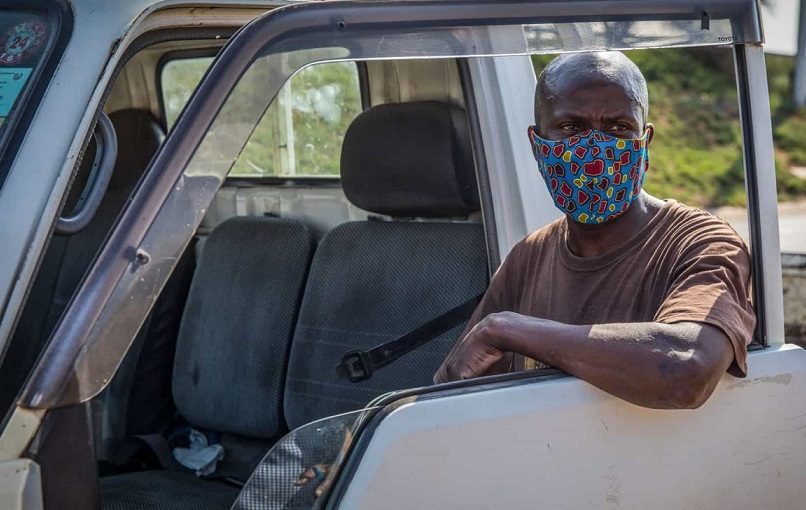Mozambique: Paramilitary forces pursue alleged terrorists in Cabo Delgado
Mozambique: Their South African dream has “gone kaput”

Photo: Lusa
Jorge, Manuel and Rufino pursued the dream of millions of Mozambicans, crossing the border to seek better living conditions in South Africa. But today they would not take that path, because the “land of the ‘rand’ has ‘gone kaput'”.
In 1990, Jorge Mabjaia, 58, left four children, a pregnant wife and the 350 building blocks that he had managed to buy on his primary teacher’s salary behind and emigrated.
In Alexandria, in South Africa, he worked as a tailor and later a painter in a construction company owned by a Portuguese businessman, but sensed worse days ahead and decided to return to Maputo and start over with his savings.
His last job in South Africa ended in 2010. Piecemeal work on his own account followed, but the situation was becoming untenable.
“The company that I left [due to bankruptcy] was a big company, but it no longer existed [because it closed] and I didn’t even take advantage of my resources, those amounts that I discounted [for Social Security], because things there went kaput in a way that didn’t help at all,” Jorge Mabjaia says.
He sought other employment, but only managed to get short-term jobs. “I realised that it was no longer good,” he says.
But a decade in the neighbouring country allowed Mabjaia to save enough to buy two cars and build two houses, one of them “very sophisticated”, he says
“From my assessment, I can say that I achieved my goal. My children studied, all of them attended Grade 12 and three have attained bachelor degrees. When I left, after working nine years in education, I only had 350 building blocks. That’s what I managed to do with the education salary,” he relates, leaning on the cab of his light cargo vehicle.
It is with this van that he delivers cargo to maintain himself and his family.
Jorge Mabjaia is realistic about the situation in South Africa today.
“That [South Africa] is already a disaster. Those who think ‘Now I want to go to South Africa to look for a job’ had better think again; they’d be better off fending for themselves where they are,” he says.
Of any possible return, he is peremptory: “No, there is no such hypothesis.”
South Africans vie for precarious jobs that they previously refused and left to foreigners, he says. “It was the Mozambicans who taught the South Africans to sell on the street, to sell tomatoes and onions,” but now they are harassed by them as competitors, he says.
Manuel Munhice, 48, also says that the South Africa which seduced him from Maputo for Soweto in 1994 is a thing of the past, because the South African economy no longer produces the jobs that led thousands of Mozambicans to migrate illegally to the land of Nelson Mandela.
Emigrating “was a way of trying to get the best living conditions, because of the difficulties,” Munhice, who stayed there “more or less two decades”, says.
After working in a baby food factory, then in another one making false ceilings, and finally in a metallurgical company, he was out of a job, and decided to buy the ice cream maker with which he made ends meet during the first few months of his return to Maputo.
“The [metallurgical] company closed in 2013. We were compensated, and tried to find jobs in other industries, but things didn’t work out,” he says.
Returning to Maputo in 2014, he sold ice cream, eventually saving enough money to buy a vehicle for transporting goods.
“I saw that this [continuing in South Africa] was not a life, and that I had better be closer to home. The little I had achieved give me enough to share, and I decided to leave South Africa,” he relates.
Rufino Manhiça, 45, also “crossed the border” to South Africa in 1999. He worked as a gardener, a driver, a security guard, welder and maintenance supervisor at a non-governmental organization.
But the desire to live with his wife and two children in Maputo was stronger than the “luxury” he enjoyed in Pretoria and he decided to return home in 2011.
“Home is always home. I lived in luxury, but my family only enjoyed this luxury when they were with me,” he narrated.
With the money he saved in South Africa he bought the land where he built his house, and with his knowledge of welding he got a job in a company that provides logistics services to a multinational.
“I can say that, on the basis of faith, it was easier [to get a job in Mozambique]. I will not lie, otherwise God will punish me,” he reports.
For the young people who still believe in the “myth” of prosperity in South Africa, Manhiça has no doubt that emigrating there today without qualifications and without legal residence is a mistake.
“South Africa is not the same it was in the time of our grandparents. It is better to have a stall on the street here and fight with the municipality,” he concludes.
South Africa, the region’s largest economy, is home to more than two million Mozambicans, working in the mines, in agriculture and in the informal sector.












Leave a Reply
Be the First to Comment!
You must be logged in to post a comment.
You must be logged in to post a comment.